Eagle Series
Hanai
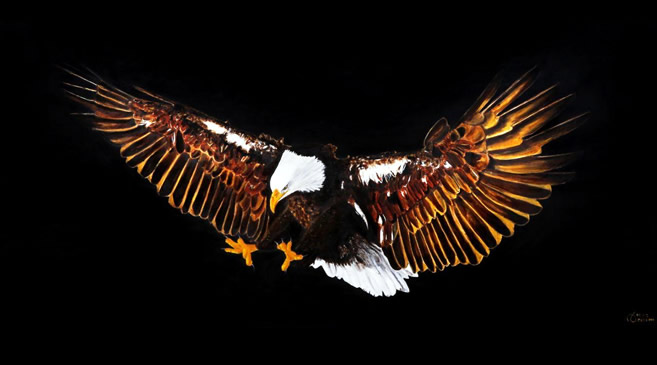
Yuma (means Son of a Chief in native Indian) Oils on canvas 100 x 100 cms 2015

Akando, (means Ambush in native Indian)Oils on canvas, 100 x 100 cms , 2015
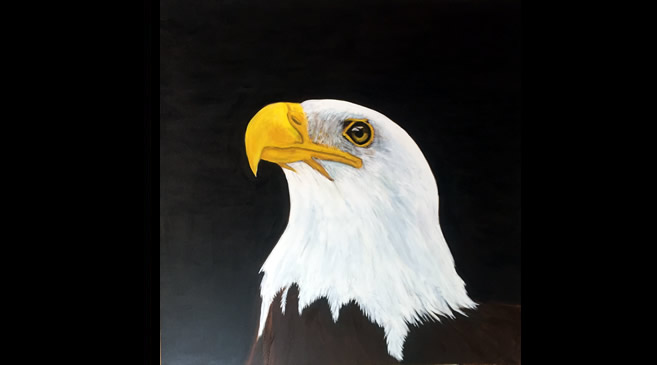
Helaku, (means Full of Sun in native Indian), Oils on canvas, 100 x 100 cms, 2015
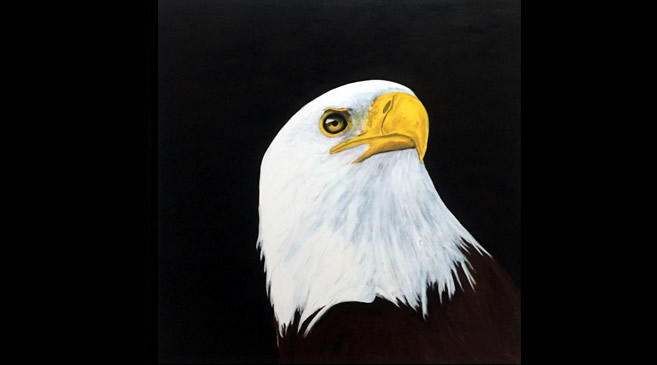
Zuma, (means Lord Frowns in anger in native Indian), Oils on canvas, 100 x 100 cms, 2015

Dyami, (means eagle in native Indian), Oils on canvas, 100 x 100 cms, 2015
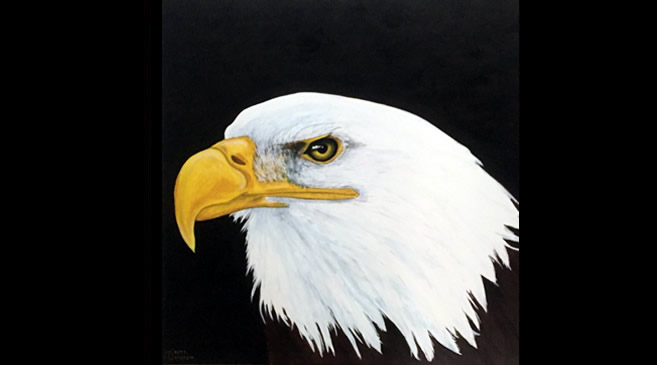
Kachina, (means Spirit / Sacred dancer in native Indian), Oils on canvas, 100 x 100 cms, 2015

Sakima, (means King in native Indian), Oils on canvas, 100 x 100 cms, 2015
Maska (means Strong in native Indian), Oils on canvas, 100 x 100 cms, 2015
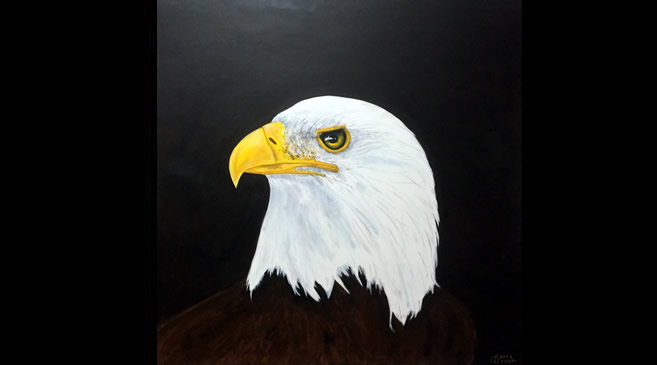
Wakiza (means Wazika in native Indian) Oils on canvas 100 x 100 cms 2015
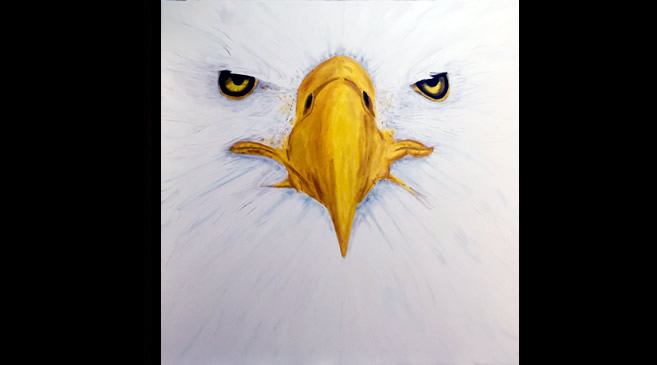
Chaska (means Star Goddess in native Indian) Oils on canvas 100 x 100 cms 2015
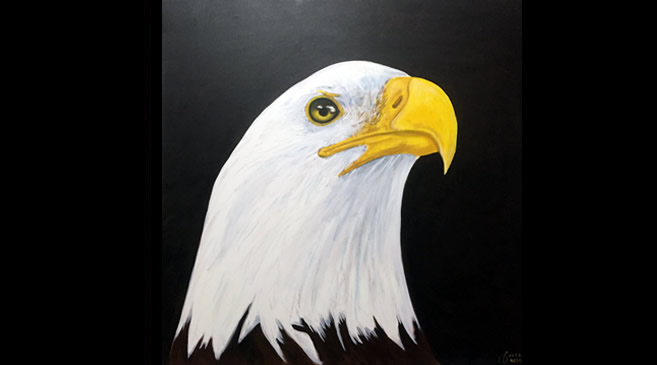
Amazing facts about the Bald Eagle
Although their name suggests otherwise, bald eagles are not bald.
Female bald eagles are larger than male bald eagles
Bald eagles build very large nests, sometimes weighing as much as a ton!
The wingspan of an eagle measures from 5.5 to 7.5 feet.
Bald eagles can fly at approximately 30 miles per hour and can dive at 100 miles per hour.
An average adult bald eagle weighs about nine pounds and is about three feet in height.
A pair of bald eagles from Florida is credited for building the largest nest that measures six meters deep, four meters wide and weighs nearly three tons.




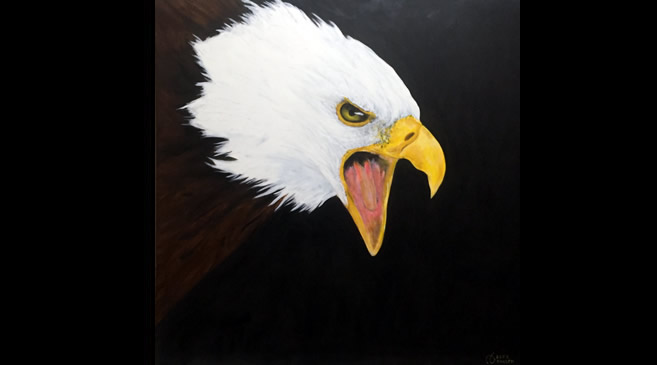




 Posts RSS
Posts RSS


